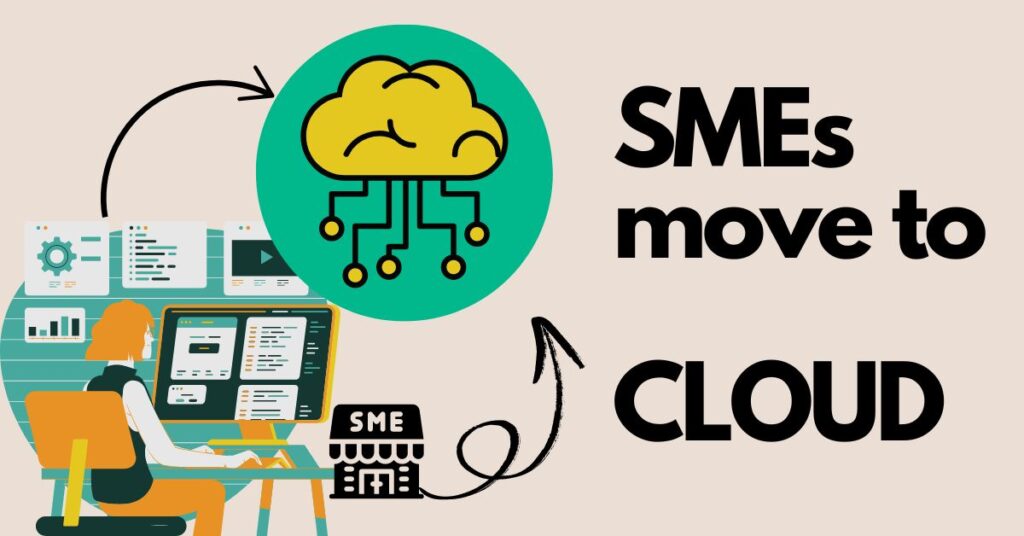
Several key factors are pushing Indian SMEs towards cloud software adoption. Cost savings are a major driver; cloud solutions often eliminate the need for expensive on-site infrastructure and IT personnel, leading to reduced upfront investment and ongoing maintenance costs. This is particularly appealing to smaller businesses with limited budgets.
Increased efficiency and productivity are also significant motivators. Cloud-based applications offer streamlined workflows and improved collaboration tools, allowing employees to work more effectively, regardless of location. This is especially beneficial for SMEs with geographically dispersed teams or those needing to access data remotely.
Scalability and flexibility are crucial advantages. Cloud services can easily adapt to the changing needs of a growing business. SMEs can quickly scale their resources up or down as required, avoiding the complexities and costs associated with upgrading on-premise systems.
Improved data security and disaster recovery capabilities are also increasingly important. Reputable cloud providers invest heavily in robust security measures, often exceeding the capabilities of individual SMEs. This offers peace of mind and protects valuable business data from loss or theft. The benefits include:
• Enhanced data backup and recovery options.
• Reduced risk of data loss due to hardware failure or natural disasters.
• Improved compliance with data protection regulations.
The increasing availability of user-friendly and affordable cloud solutions tailored specifically to the needs of SMEs is a major catalyst for adoption. Many providers offer flexible pricing plans and excellent customer support, making the transition to the cloud smoother and less daunting.
Despite the numerous benefits, Indian SMEs face hurdles in embracing cloud software. A significant concern is data security and privacy. Many businesses worry about the security of their sensitive data stored on third-party servers, particularly given the increasing number of cyber threats.
Cost remains a factor, even with the potential for long-term savings. Initial setup costs, training employees, and potential ongoing subscription fees can be a barrier for businesses with tight budgets. Understanding the various pricing models and choosing the right plan is crucial.
Lack of digital literacy and technical expertise presents another challenge. Many SMEs lack the in-house IT skills to effectively manage and utilise cloud-based systems. This necessitates investment in training and potentially outsourcing IT management.
Integration with existing systems can also be complex. Seamlessly integrating cloud solutions with legacy systems and other software used by the business is essential for efficient operation. Poor integration can lead to data silos and workflow inefficiencies.
Concerns about vendor lock-in are also prevalent. Switching cloud providers can be a time-consuming and costly process. SMEs need to carefully evaluate providers and choose solutions that offer flexibility and portability.
Overcoming these challenges requires a multi-pronged approach. This includes:
• Increased awareness and education on cloud security and benefits.
• Government initiatives to support SME digital transformation.
• Development of affordable and user-friendly cloud solutions tailored to SME needs.
• Access to training and support to bridge the digital skills gap.
Looking ahead, several trends are likely to shape the future of cloud software adoption among Indian SMEs. The rise of Artificial Intelligence (AI) and machine learning (ML) integrated into cloud platforms will offer SMEs powerful tools for automation, data analysis, and improved decision-making. This will lead to greater efficiency and competitiveness.
We can expect to see a surge in the adoption of cloud-based services specifically designed for niche industries. Tailored solutions will address the unique needs of specific sectors, leading to increased uptake and better integration within existing workflows.
The increasing importance of data security will drive demand for robust and compliant cloud solutions. SMEs will prioritise providers who demonstrate a strong commitment to data protection and privacy, complying with relevant regulations like the Personal Data Protection Bill.
The integration of cloud services with other technologies like the Internet of Things (IoT) will become increasingly important. This will allow SMEs to collect and analyse data from various sources, leading to better insights and improved operational efficiency. This integration will be key to future growth.
Furthermore, the government’s continued push for digitalisation, along with initiatives to improve digital literacy and infrastructure, will create a more favourable environment for cloud adoption. Increased support and awareness will help SMEs overcome existing barriers and embrace the benefits of cloud technology.
Expect to see a rise in cloud-based marketplace platforms, where SMEs can easily discover, compare, and purchase cloud solutions that meet their specific needs. This simplified approach will streamline the adoption process and encourage wider uptake.